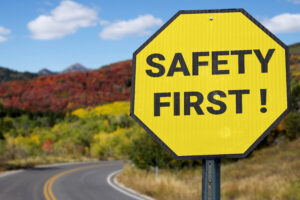As the cannabis industry continues to flourish in New York, many entrepreneurs are eyeing opportunities to open dispensaries. With New York legalizing recreational cannabis under the Marijuana Regulation and Taxation Act (MRTA) in 2021, the market is expected to grow rapidly, with projections of $1.3 billion in sales by 2025. If you’re considering opening a cannabis dispensary in New York, you’ll need to navigate through a regulated and competitive environment. Below is a step-by-step guide to help you start a successful cannabis dispensary in the state.
1. Understand the Legal Framework and Licensing Process

To operate a dispensary, it is critical to understand the cannabis laws and licensing requirements in New York. The state’s cannabis industry is overseen by the Office of Cannabis Management (OCM), which is responsible for issuing licenses, monitoring compliance, and enforcing regulations. The Cannabis Control Board (CCB) handles applications and ensures adherence to the MRTA.
New York issues several types of cannabis licenses, with the Conditional Adult-Use Retail Dispensary (CAURD) license being the most relevant for dispensary owners. The state opened applications for these licenses in 2023, and over 500 licenses are expected to be granted by 2025.
Applicants should note that New York’s regulations place a heavy emphasis on social equity. Priority is given to applicants from communities disproportionately affected by cannabis prohibition, such as individuals with past convictions related to marijuana or those from underrepresented communities.
2. Types of Cannabis Dispensary Licenses

Before starting your dispensary, you must decide which type of license to apply for. In New York, the available licenses for dispensaries include:
•Adult-Use Retail Dispensary License: This license allows the sale of recreational cannabis to individuals over the age of 21.
•On-Site Consumption License: For dispensaries that want to allow customers to consume cannabis products on-site, akin to a cannabis lounge.
•Microbusiness License: Allows small-scale operations to grow, process, and sell cannabis directly to consumers. This is suitable for businesses looking for vertical integration on a smaller scale.
Once you have determined which type of license suits your business plan, you can proceed with the application process through the New York Business Express (NYBE) portal.
3. Prepare and Submit Your License Application

To apply for a dispensary license, your application must include detailed documentation demonstrating compliance with state regulations.
This includes:
•Business Plan: Clearly outline your business model, including projected financials, market analysis, and operational strategies.
•Security Plan: Cannabis dispensaries in New York must adhere to strict security requirements. Your plan should include surveillance systems, access control, and procedures for safeguarding cannabis products.
•Community Impact Plan: New York is committed to promoting social equity within the cannabis industry. In your application, demonstrate how your dispensary will contribute to local community development, create job opportunities, and promote inclusivity.
The licensing process is competitive, so your materials must be well-organized and thoroughly researched. The application fee for the Conditional Adult-Use Retail Dispensary License is $2,000, and the fee for a full retail dispensary license is $7,000.
4. Secure Funding

Starting a cannabis dispensary requires significant capital investment. The total cost to launch a dispensary in New York can range from $400,000 to over $1 million, depending on factors such as the size and location of your dispensary.
Key expenses include:
•Real Estate: Leasing or purchasing a property that complies with zoning regulations.
•Build-Out and Renovation: Construction costs to make the space compliant with state regulations, which can range from $350,000 to $1 million.
•Inventory and Equipment: Stocking your dispensary with a variety of cannabis products and purchasing point-of-sale systems, security equipment, and display cases.
Funding options for cannabis businesses can be limited due to federal restrictions on cannabis banking. Many dispensary owners rely on private investors, venture capital, or crowdfunding to secure the necessary funds.
5. Find a Location and Meet Zoning Requirements

Finding the right location for your dispensary is crucial to its success. New York has stringent zoning laws for cannabis businesses. Dispensaries cannot be located within 500 feet of schools or 200 feet of houses of worship. In smaller towns, they must maintain a distance of 2,000 feet from each other.
Consider the following factors when selecting a location:
•Foot Traffic: Choose a location with a high volume of potential customers.
•Accessibility: Ensure your dispensary is easily accessible by public transportation and has adequate parking.
•Compliance with Local Laws: Check local regulations, as some municipalities may impose additional zoning restrictions or have opted out of allowing dispensaries altogether.
6. Build and Design Your Dispensary

Once you have secured a location, the next step is to design a welcoming and functional retail space. The layout of your dispensary should be customer-friendly, with clear sections for different product types like flower, edibles, tinctures, and concentrates. Incorporate educational displays to inform customers about product varieties, strains, and consumption methods.
Additionally, make sure your dispensary complies with New York’s stringent security requirements. This includes installing surveillance cameras, motion detectors, and secure storage for cannabis products.
7. Hire and Train Staff

Staffing is a critical aspect of running a successful cannabis dispensary. New York requires all dispensary employees to undergo compliance training to ensure they understand state regulations, product handling, and customer service. When hiring staff, prioritize individuals who are passionate about cannabis and have experience in customer service or retail management.
8. Marketing and Promotion

Marketing a cannabis business in New York comes with its own set of challenges due to state and federal advertising restrictions. Digital marketing platforms like Google and Facebook have stringent policies against cannabis advertising.
However, dispensaries can use alternative methods, such as:
•SEO and Content Marketing: Optimize your website for local SEO to ensure it appears in search results for queries like “Medical Marijuana Card New York” or “Cannabis Dispensary Near Me.”
•Social Media: Use platforms like Instagram and Twitter to build a following, share educational content, and promote special offers (in compliance with local advertising laws).
•Community Events: Hosting educational workshops or wellness events can help build brand awareness and trust within the local community.
9. Compliance and Security Measures

Maintaining compliance with New York’s cannabis regulations is an ongoing responsibility. You must track all sales and inventory through a compliant POS system and submit regular reports to the Office of Cannabis Management (OCM). Dispensaries are subject to regular audits and inspections, so it’s essential to stay up-to-date on any changes in state regulations.
Conclusion
Starting a cannabis dispensary in New York is a highly regulated and capital-intensive process, but with proper planning and compliance, it can be a lucrative business. From applying for the right license to building a compliant, customer-friendly dispensary, each step requires careful attention to detail. By understanding New York’s cannabis laws, securing adequate funding, and developing strong community ties, you can position your dispensary for success in the rapidly growing New York cannabis market.

